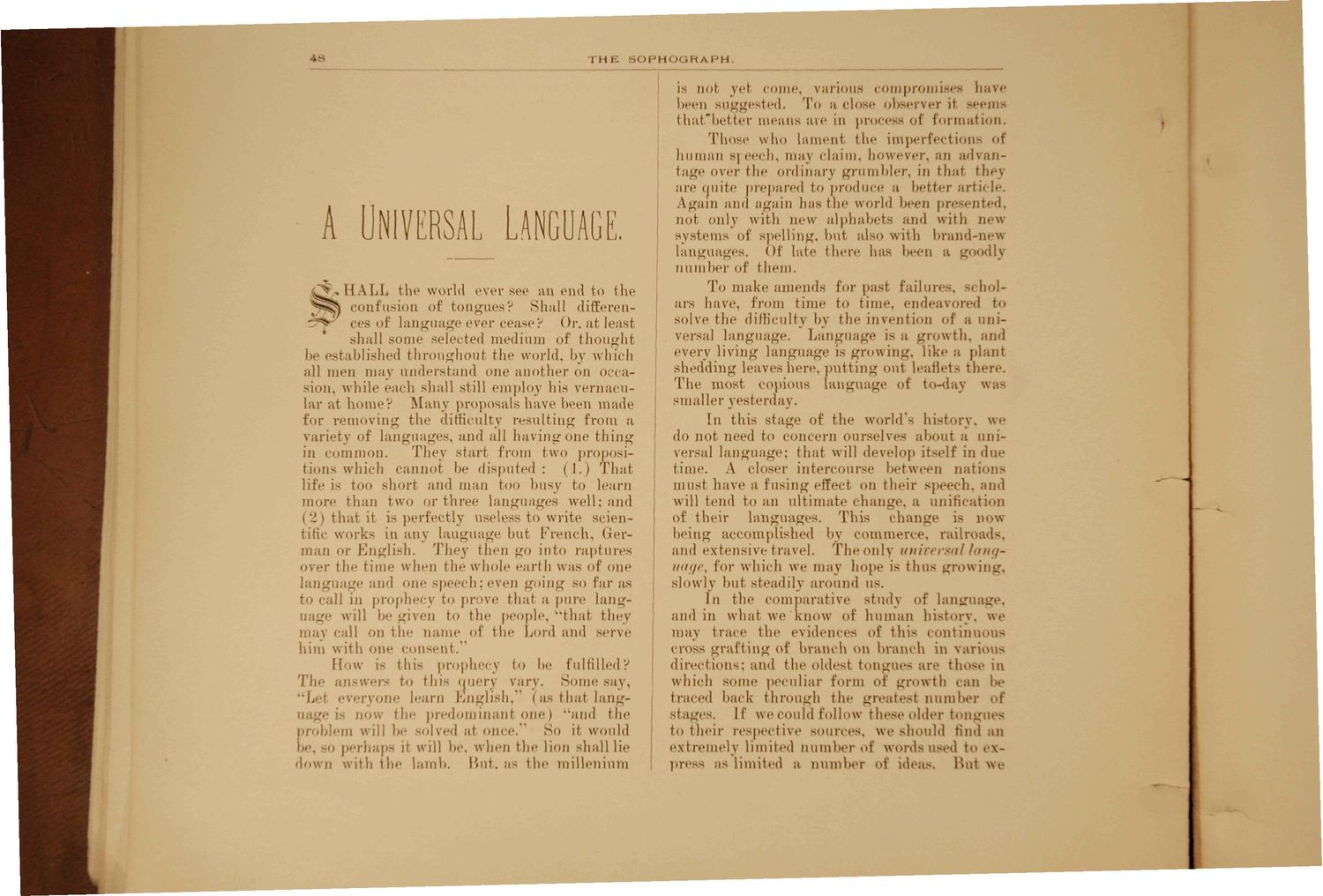| |
| |
Caption: Sophograph - 1891
This is a reduced-resolution page image for fast online browsing.

EXTRACTED TEXT FROM PAGE:
4s III! ui'Hoi.HAl'H. is not yet come, various com prom been Suggested. To a close ol Tver it have -cc/u J n J i Z ^ H A L L the world ever sec an end to the confusion of tongues? Shall differences of language ever cease? Or, at least shall some selected medium of thought be established throughout the world, by which all men may understand one another on occasion, while each shall still employ his vernacular at home? Many proposals have been made for removing the difficulty resulting from a variety of languages, and all having one thing in ••'.niinon. They start from two propositions which cannot be disputed: (1.) That life is too short and man too busy to learn more than two or three languages well: and (2) that it is perfectly useless to write scientific works in any lauguage but French, (ierman or English. They then go into raptures over the time when the whole earth was of one language and one speech; even going so far as to call in prophecy to prove thai a pure language will be given to the people, "that they m. call on the name of the Lord and sewe him with on*- consent." How is this prophecy to be fulfilled? The answers to this query vary. Some say, 1 ••|. everyone learn English/ (as that language is now the predominant one) "and the problem will be olved at once.'" So il would be, so perhaps it will be, when the lion shall lie down with the lamb. Rut, as the niilleniuni that'het tcr means are in process of formation. Those who lament the imperfection- of human speech, may claim, however, an advantage over the ordinary grumbler, in thai they are quite prepared to produce a better article. Again and again has the world been presented, not only with new alphabet- and with newsystems of spelling, but also with brand-new languages. Of late there has been a goodly number of them. To make amends for past failures, scholars have, Prom time to time, endeavored to solve the difficulty by the invention of a universal language. Language is a growth, and every living language is growing, like a plant shedding leaves here, putting out leaflets there. The most, copious language of to-day was smaller yesterday. In this stage of the world's history, we do not need to concern ourselves about a universal language; that will develop it-elf in dm time. A closer intercourse between nations must have a fusing effect on their speech, and will tend to an ultimate change, a unification of their languages. This change is now being accomplished by commerce, railroads, and extensive travel. The only universal language, for whi(d) we may hope is thus growing, slowly but steadily around us. In the comparative study of language, and in what we know of human history, we may trace the evidences of this continuous cross grafting of branch on branch in various directions; and the oldest tongues are those in which some peculiar form of growth can be traced back through the greatest number of stages. If we could follow these older tongues to their respective sources, we .should tind an extremely limited number of WOrdsused to express as limited a number o\ ideas. Bui wt
| |